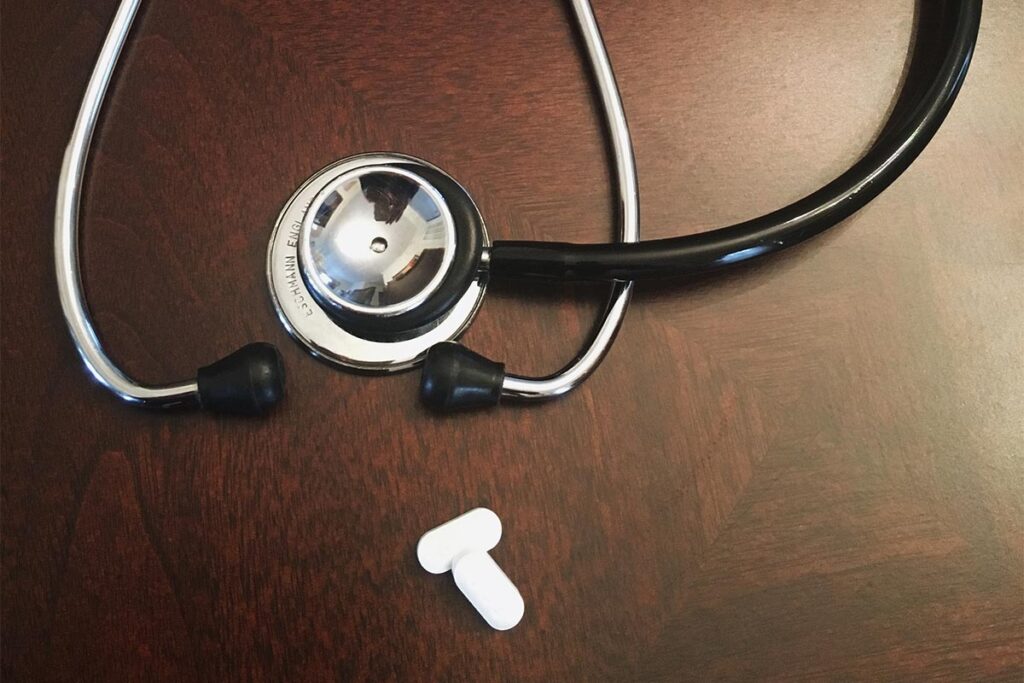We Accept Most Insurance. Please Call to Verify Yours.






![]()







If you or a loved one is struggling with a substance use disorder, you very likely need a detox period before you can move into rehabilitation and behavioral treatment. Detox refers to medically assisted or managed (monitored) withdrawal from drugs or alcohol. And, often that’s necessary to ensure you don’t suffer from dangerous complications. Depending on what you’re using and what you have to recover from, detox can be there to ensure you can move through withdrawal safely, to ensure you stay comfortable, and to ensure you can make it through withdrawal at all. In either case, you can typically expect the detox process to take an average of 14 days. On the other hand, the actual timeline will heavily depend on what you’re using, how long you’ve been using, and what kind of detox you choose. We’ll go over that and more in the following article.
Most rehab centers will offer one primary detox option. However, some will offer a range of options, allowing you to choose something that works for your needs and timeline. Detox primarily requires managing and monitoring the symptoms and side-effects of withdrawal to get you through to recovery safely. Here, most rehab centers will offer:
Essentially, the duration of detox will heavily depend on what kind of detox you choose.

If you’re going for social detox, you can expect about the following detox timers. However, these will vary depending on you, your age, your metabolism, and health. In addition, if you use a medication assisted program, you’ll see vastly different timelines.
Otherwise, the duration of your detox will depend on how long you’ve been using, what you’re using, and factors like age and weight.


Drug detox means checking into a clinic and getting medical support while you withdraw. That typically tarts with intake, tailoring a program to your needs, and moving you through the process. Often, the steps are as follows:
In most cases, you leave detox when you show signs of being well enough to join regular treatment and care. That can be anywhere from a few days to a few weeks. In addition, if you’re receiving medication, you might actually go straight into treatment and skip a separate detox phase.
Unless you’re prescribed medication to mitigate or prevent withdrawal symptoms, you will have to deal with those symptoms during withdrawal. However, withdrawal symptoms change depending on what you’re using and how much. However, most people going through withdrawal will experience:
Here, it’s important that you receive monitoring to ensure you don’t dehydrate, to keep your mental health up, and to prevent dangerous complications. For example, 10-30% of persons withdrawing from alcohol are at risk of delirium tremens, a potentially fatal complication of alcohol withdrawal.
Withdrawing without detox can also result in significant risks to your health. Therefore, it’s always important to look for medical assistance and monitoring, even if you want to try to avoid medication to reduce those symptoms.

If you’re struggling with substance use, you may need detox. That’s especially true if you’re using alcohol, an opioid of any kind (heroin, pain pills, fentanyl, speed), amphetamines, and benzodiazepines. These drugs run the risk of dangerous side-effects and complications. However, you may want and benefit from detox even if you have a low-risk withdrawal period. Here, you’ll typically receive early therapy, education, emotional and psychological support, and introduction to your peers so that you can get perspective and insight into your recovery.
Eventually, if you need detox, you’ll also need addiction treatment. That will mean moving into a counseling and therapy program, typically attached to the detox program. Here, you’ll learn behavioral interventions for substance abuse, will get help uncovering and treating the underlying causes behind substance abuse, and will learn skills to improve your life and how you manage it.
If you or a loved one is seeking help for substance abuse or alcoholism, contact us at Stairway Resource Center now. Stairway Resource Center features a 60 to 90-day outpatient program that takes place in an engaging and supportive community setting. We also offer dual diagnosis treatment and daily group and individual therapy for our clients, in addition to fun community-based events and activities that assist in achieving long-term sobriety.